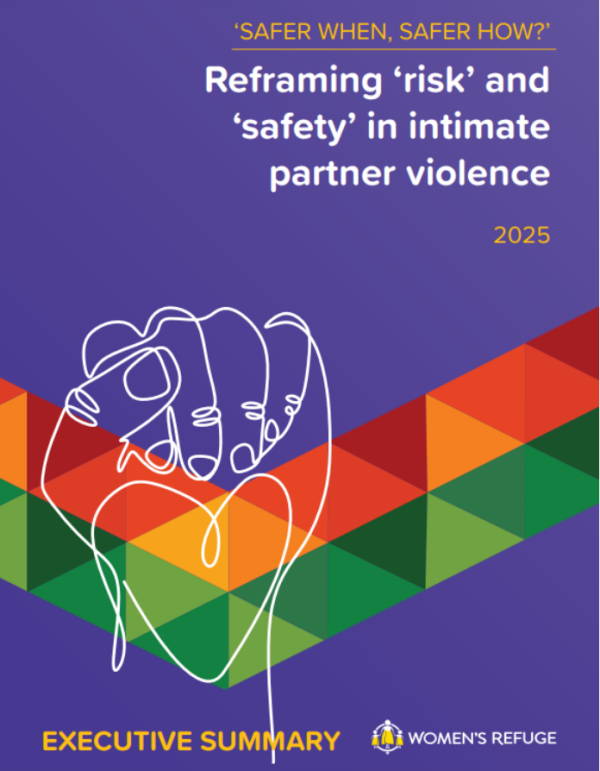The National Collective of Independent Women’s Refuges (which endorses DVFREE), has released two new research reports this year based on findings from a survey of 1707 women and non-binary people who experienced intimate partner violence (IPV).
The report, Safer When, Safer How? Reframing ‘risk’ and ‘safety’ in intimate partner violence, highlights that IPV causes harm that extends far beyond physical injury into every aspect of people’s lives.

Many forms of harm persist for years or decades after separation:
- Nearly 40% of respondents experienced ongoing violence and nearly 80% feared for their safety after six months’ separation. At 15+ years, about 10% still experienced ongoing violence, and nearly 50% still feared for their safety.
- About 60% feared for their children’s safety after six months’ separation, which only began to decrease after five years.
- 80-100% of respondents reported worse mental health, worse everyday coping, worse physical health, and less connection to whānau/whakapapa. At 15+ years, all of these still impacted more than 60% of respondents.
Three points of difference were identified for support that helped to stop the violence for good, versus those that did not:
- Services gave more practical support with things that people could not do on their own
- They gave help quickly when it was most needed
- They provided support that was tailored to what people most needed
Another Refuge report from earlier this year, Traumatic Brain Injury (TBI) and Intimate Partner Violence, highlights brain injury is common for people experiencing IPV, yet also largely unrecognised and untreated. Most of what is known about TBI comes from research into sports, combat or crash injuries – where those affected are supported to heal and recover. In contrast, TBI for women experiencing IPV is often repeated, with little to no opportunities for healing and recovery. Brain injury can be caused by blows to the head, or by strangulation or suffocation that starves the brain of oxygen.
A Women’s Refuge TBI handout provides practical tips for supporting people experiencing IPV and brain injury on the second page.
Find more Women’s Refuge research and resources here.